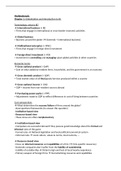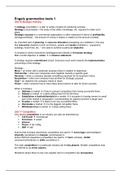Summary
Summary Multinationals (2021/2022)
- Module
- Institution
Complete summary of the part "Multinationals" of the course Multinationals and European Institutions. This course was taught by professor A. Pauwels and A. Slangen in 2021/2022. (BBA KU Leuven)
[Show more]





